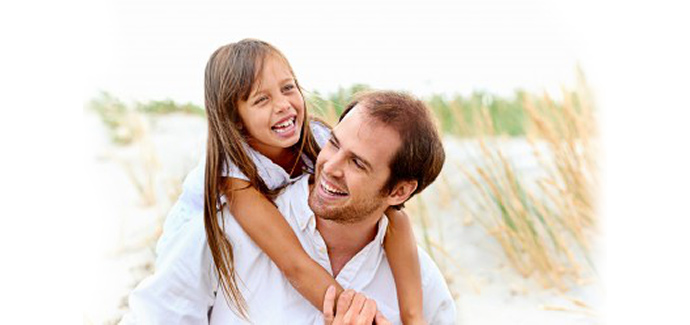
My Thoughts about Father’s Day
I read a book written by a 75-year old professor of fine arts who explained that her children are now just friends she gave birth to. This is how I feel about my children.
Now that my children are adults, I realize that there’s a separate story arc of parenting, with its own unique lessons for both the child and the parent as each grows.
In New Passages, Gaily Sheehy observes that today adolescence generally ends at around 30 and only then do we start becoming adults. If you’re a young parent, you’re kind of a kid yourself, even if you don’t realize it. As a young father, I was worried and anxious about almost everything that concerned my babies.
I was the youngest of two children and hadn’t yet had the experience of knowing what was a real child crisis and what was a typical event or stage in a child’s development. Years ago, I listened to Bill Cosby doing a comedy routine about the difference between a young mother and a grandmother. He spins a tale of a young mother whose kid falls into a child’s wading pool while they are at a park. The mother panics and yanks the kid out of the shallow water, but her obvious anxiety translates immediately to her child, who immediately starts screaming. A grandmother always carries Kleenex and a roll of Lifesavers, and in the same situation, she recognizes the situation as typical toddler behavior, walks over, picks the kid up, puts the tissue over the child’s nose and says “Blow,” pops the candy in his mouth, and everything is cool and a “‘non-event.”
This difference comes with experience that transforms us from being inexperienced to being masterful, which takes maturity as well as experience. This is what neuroplasticity– the malleability of our brain that allows us to learn new ways of thinking and acting –is all about. As we grow as human beings and as parents, we create the neural pathways in our brain that, after decades of mindfully learning to be a parent, enable our brain to help us relate effectively in raising kids. This is what allows the grandmother to know the situation isn’t a crisis whereas the young mother experiences it as a crisis.
I was 27 when my first daughter was born, and it was a time when fathers generally didn’t watch the birth. The doctor came out after delivering her and said “You have a girl that’s fine, but she has yellow jaundice so we’re going to put her in an incubator and give her a light treatment.” I had never been around newborns, so I skipped mindfulness – which I didn’t yet have as I was still totally into my head, responding automatically with the past-based ways of thinking and behaving that I’d learned from my own childhood –and went straight to panic, praying to God that she would be okay without the tiniest inkling that this was a common, non-threatening condition in newborns with a simple and effective treatment.
Now, 40 years later, that same daughter shares with me her parenting issues with my grandson, often in an activated and perhaps extremely concerned way, which I understand, because I’ve gone through the learning curve and now know that these issues that seem big and frightening to her with an eight-year-old child may not be as big in the long run as they presently appear. This is the story arc of parenting.
While our children are growing up, we have the opportunity to grow up, too, maturing as a parent. It’s a lot easier to be a good parent in your 50s than a good parent in your 20s.
I participated in EST, a popular human potential seminar, when I was 31 years-old. Back then, I thought all my troubles were due to something my parents “did to me.” I took a similar course exactly 31 years later, and realized that, from inexperience and acting unconsciously, I did some of those same things to my kids, and that this is a common experience of parents and children.
We start out as new parents relying on whatever life skills and awareness we developed as we grew up, embodied in the neural pathways in our brain that govern our behavior. The level of life skills and awareness we start out with depends on how healthy or unhealthy our own childhoods were. As we gain experience parenting, if we are mindful – that is, if we are truly present in the situations we are experiencing rather than acting on automatic pilot – we develop new neural pathways by learning as we go, and gradually these become the neural pathways that govern our behavior as parents.
Through mindfulness, we become more attuned to our children and to ourselves, more compassionate, insightful, and empathetic, and the new neural pathways we develop help us become more masterful parents, which allows us to make more and more appropriate and responsible parenting choices.
This process is similar to how dirt roads or unkempt hiking paths in heavily overgrown areas get more and more traffic and eventually are developed as modern superhighways; the more we use our new neural pathways, the more developed they become, and eventually, by the time our children are adults, they are so developed that they’re like superhighways in our brain, supporting us in being mindful parents.
Father’s Day and every day, I’m filled with gratitude for my children’s friendship and for the interesting, individuals that they have become, and for my parents and for the CIRCLE OF LIFE.
- 13 Jun, 2013
- Posted by Steve Fogel
- 0 Comments



COMMENTS